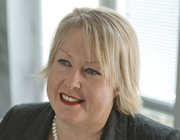J. Moreno-Serna, W.M. Purcell, T. Sanchez-Chaparro, Soberon, M., J. Lumbreras, and C. Mataix. 9/3/2020. “
CATALYZING TRANSFORMATION PARTNERSHIPS FOR THE SDGs: EFFECTIVENESS AND IMPACT OF THE MULTI-STAKEHOLDER INITIATIVE EL DIA DESPUES. .” Sustainability, 17, Pp. 7189.
AbstractPartnerships are essential to delivering the transformational change demanded by the Sustainable Development Goals (SDG) and essential to achieving Agenda 2030. It is therefore necessary to strengthen the partnering capacity of different types of organizations so they can collaborate in multi-stakeholder partnerships. However, partnership working can be costly in terms of time and other resources and is complex. Given the urgency and importance of sustainable development, illustrated by the recent pandemic and social unrest around inequity, we focused on the creation of a partnership that became effective quickly and was able to deliver societal impact at scale. Using a case study approach, the transformational potential and the early stages of “El día después” (in English, “The day after”) were analyzed as it represents a multi-stakeholder partnership forged to frame an SDG-oriented collaborative response to the COVID-19 crisis in Spain. El día después is defined as a partnership incubator, a space where public administrations interact under conditions of equivalence with all the other stakeholders, where private companies can link their innovation processes to other SDG-committed actors and social needs and where the academic sector can participate in a sustained dialogue oriented to the action. Our findings reveal that in order to catalyze the co-creation process and achieve systemic change through a set of connected multi-stakeholder initiatives, a very flexible collaborative arrangement is required, with all partners acting as facilitators. In this way, a solid interdisciplinary team is created, united around a shared vision, with trust-based relationships and a common identity fueling impact-oriented projects targeted to advance the SDGs.
 edd_upm_final_sustainability-12-07189.pdf
edd_upm_final_sustainability-12-07189.pdf W.M. Purcell. 2020. “
ENVIRONMENTAL SUSTAINABILITY AND DEVELOPMENT IN ORGANIZATIONS: CHALLENGES AND NEW STRATEGIES.” In . CRC Press/Taylor & Francis Group.
AbstractPreparation of Foreword and Certified Evaluator

